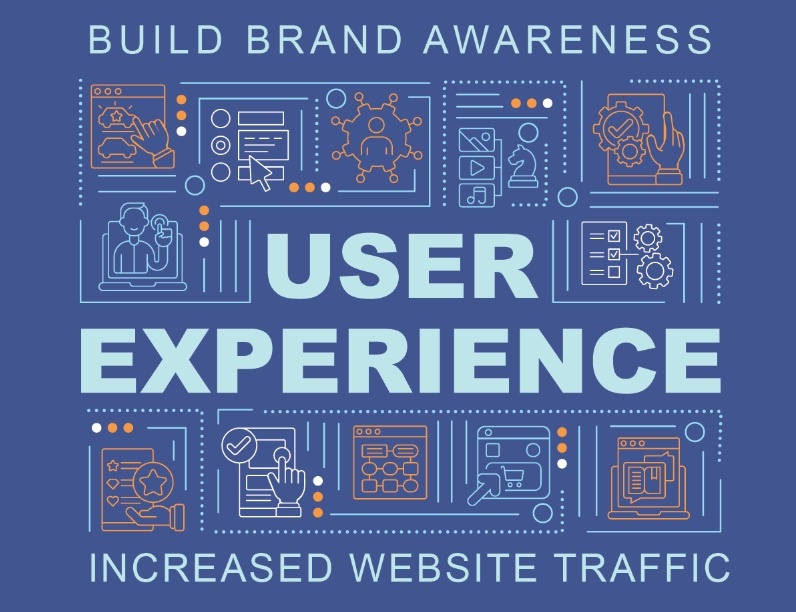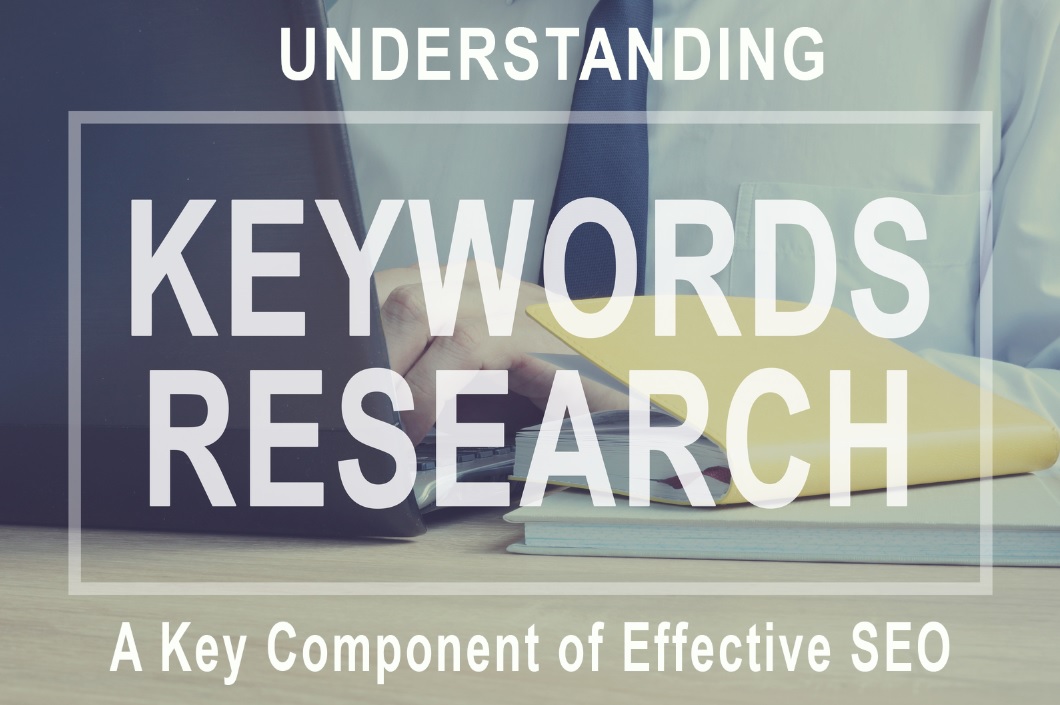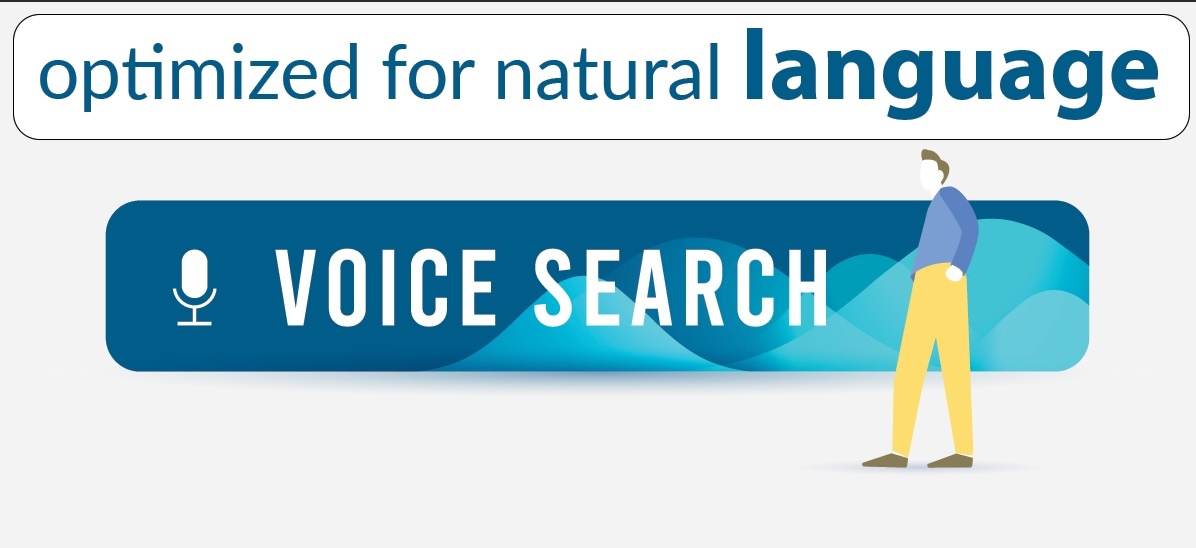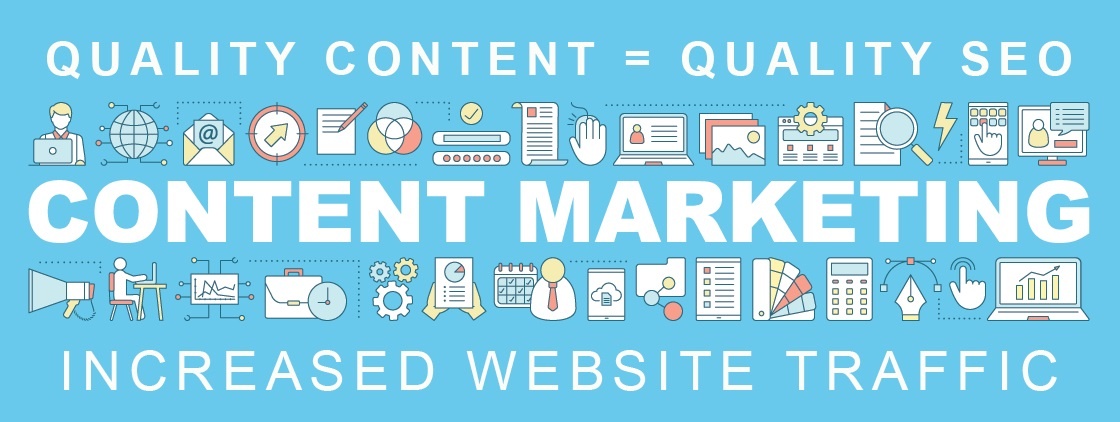Boost Your Business with SEO: 9 Business-Boosting SEO Benefits
In today’s highly competitive business environment, having a strong online presence is more important than ever. With so many consumers turning to the internet to find products and services, it’s crucial that businesses effectively market their websites to improve their visibility in search engine results pages (SERP). T
hat’s where search engine optimization (SEO) comes in. SEO has become crucial for any business, no matter its size or industry, to establish and grow its online presence. In fact, SEO is expected to become even more important for businesses in 2023 and beyond. From small startups to large corporations, every business needs SEO to stay ahead of the competition. The top 15 benefits of SEO are numerous and varied, including improved website traffic, better user experience, and increased trust and credibility among consumers.
SEO is a long-term investment that pays off by improving search engine rankings, increasing website traffic, and ultimately driving business growth.
So, whether you have a small business that operates online or a large corporation with a substantial digital marketing budget, SEO is essential for building a strong online presence and driving business success.
1. What are the SEO Benefits?
15 Benefits of SEO: Why Your Business Can’t Afford to Ignore It
SEO (Search Engine Optimization) is an essential tool for any business looking to succeed in today’s digital landscape.
Here are the top 15 benefits of SEO for your business in 2023 and beyond
1. SEO improves your search result rankings: By optimizing your website’s content and structure, you’ll rank higher in search engine results pages (SERPs), leading to increased visibility and traffic.
2. SEO helps you generate more traffic to your website: By attracting more visitors to your site, you’ll increase the opportunities to convert them into customers.
3. SEO allows you to target customers looking for your product or service: By optimizing your website for specific keywords, you can attract highly targeted traffic and increase your chances of conversions.
4. SEO builds trust and credibility for your business: By having a strong online presence, you’ll appear trustworthy and authoritative in the eyes of your audience.
5. SEO can help you compete with larger businesses: By optimizing your website and content, you can level the playing field and compete with bigger brands.
6. SEO is one of the most cost-effective marketing strategies: Compared to traditional advertising, SEO is much less expensive and provides long-term benefits. 7. SEO benefits all types of businesses, from small local businesses to large multinational corporations.
8. SEO allows you to measure and track your results: By analyzing your website traffic and rankings, you can make data-driven decisions to improve your SEO strategy.
9. SEO allows you to stay ahead of your competition: By continuously optimizing your website and content, you’ll stay ahead of your competition in search engine rankings.
10. SEO creates a better user experience for your website visitors: By optimizing your website’s structure and content, you’ll provide a better user experience for your visitors.
11. SEO helps you to attract quality leads: By targeting specific keywords and phrases, you can attract leads that are more likely to convert into customers.
12. SEO can help you to expand your reach to new markets and audiences.
13. SEO provides long-term benefits: Unlike other marketing strategies, SEO provides long-lasting benefits that can continue to drive traffic and revenue for your business.
14. SEO can help you to build brand awareness: By ranking high in search engine results, you’ll expose your brand to more potential customers.
15. SEO helps you to grow your business: By driving more traffic and revenue to your website, you’ll be able to reinvest in your business and continue to grow. In conclusion, SEO is the best way to improve your online visibility, attract quality leads, and drive more revenue to your business. By investing in proper SEO practices, you can enjoy the benefits of SEO and achieve long-term success for your business.
2. How Search Engine Optimization Can Help Grow Your Small Business
Search Engine Optimization (SEO) can help grow your small business by improving your website’s visibility and ranking on search engines, attracting more traffic to your website, and ultimately generating more leads and revenue for your business. SEO involves a series of techniques and strategies that focus on improving your website’s relevance and quality to search engine algorithms, making it more likely to appear in search results when users search for keywords or phrases relevant to your business. Investing in SEO can be a worthwhile investment for business owners looking to grow their business online. While SEO work can be time-consuming and require ongoing effort, the benefits of implementing a successful SEO strategy can outweigh the costs. Some of the biggest benefits of SEO for businesses include
1. Increased visibility and rankings on search engines
2. Attracting more targeted traffic to your website
3. Increased credibility and authority in your industry
4. Improved user experience on your website
5. Long-term results and sustainability for your marketing efforts
6. Cost-effective marketing compared to traditional advertising
7. Ability to track and measure success through analytics 8. Staying ahead of competitors in your industry
9. Improved targeting of your target audience
10. Increased leads and revenue for your business Effective SEO strategy can help you find your website and attract new customers. By focusing on creating quality content, optimizing your website for search engines, and utilizing SEO tools, you can improve your website’s visibility and attract more targeted traffic.
A strong SEO and PPC (pay-per-click) strategy can work together to create a successful online marketing campaign. Although SEO work requires ongoing effort, it can be learned and incorporated into your business goals through experienced SEO professionals or by understanding SEO yourself. Implementing an effective SEO strategy can lead to improved revenue and business goals, and can help you stay ahead of the competition in the world of SEO.
3. The Importance of a Strong User Experience for Successful SEO
In today’s digital age, search engine optimization (SEO) has become a critical component of the success of any online business. A strong user experience is one of the most important factors in achieving successful SEO rankings. Whether you are new to SEO or have a well-established website, incorporating SEO into your marketing strategy can have significant benefits for your business.
One of the key benefits of search engine optimization is that it increases your website’s visibility and ranking in the search engine results pages (SERPs). Studies show that users are more likely to click on the top results that appear in search engines. Therefore, the right SEO techniques can help you attract more potential customers to your website. Another benefit of SEO is that it leads to higher-quality traffic for your website.
Optimizing your website for the right audience helps to attract users who are genuinely interested in your products or services. This, in turn, leads to higher conversion rates and increased revenue for your business.
Implementing SEO also helps to focus your marketing efforts on the right audience. This targeted approach helps to create more relevant content and messaging for your website visitors, leading to a better user experience.
SEO enhances your website’s usability by making it easier for users to navigate, find the information they need, and complete desired actions. This leads to higher engagement levels, longer dwell times, and increased conversions.
Incorporating SEO into your marketing strategy can also help you stay ahead of the competition. A top-ranking website on search engines consistently attracts more business revenue than a website that doesn’t focus on SEO.
Finally, partnering with an experienced SEO team or expert like EckCreativeMedia can provide numerous benefits for your business. They can help to create a tailored SEO plan to meet your unique business needs, staying up to date with the latest SEO trends and best practices to ensure you stay ahead of the competition. In conclusion, SEO is always evolving and has become an essential part of every marketing strategy. By learning SEO and implementing high-quality techniques, your business can see the top benefits of SEO and drive leads for your business.
4. Local SEO Strategies: How to Optimize Your Business for Local Search
Local SEO, local SEO best practices Local SEO is critical for businesses with a physical location as it helps them attract local customers looking for their products or services. Here are some local SEO strategies to optimize your business for local search:
1. Claim and Optimize Your Google My Business Listing: Ensure your business information is complete and accurate, including your address, phone number, and operating hours.
2. Build Local Citations: Get your business listed on online directories, such as Yelp, YellowPages, and Foursquare. Ensure your information is consistent across all listings.
3. Optimize Your Website: Optimize your website for local keywords and add location pages for each of your locations.
4. Generate Reviews: Encourage customers to leave reviews on Google, Yelp, and other review sites. Respond to all reviews, whether positive or negative.
5. Use Local Schema Markup: Add local schema markup to your website to provide Google with structured data about your business, such as your business address, phone number, and operating hours.
6. Get Local Backlinks: Get backlinks from local websites, such as local news sites, blogs, and directories.
7. Use Social Media: Use social media to promote your business, engage with your customers, and build a local following.
8. Host Local Events: Host local events to attract customers to your business and generate local buzz.
9. Offer Local Discounts: Offer local discounts to attract customers and encourage them to visit your business.
10. Monitor Your Local SEO: Monitor your local SEO regularly and make adjustments to your strategy as necessary. In conclusion, local SEO is a powerful tool that can help businesses attract local customers and boost their online presence.
By implementing these strategies, businesses can improve their local search rankings, generate more local leads, and ultimately increase sales.
5. How Content Marketing and SEO Go Hand in Hand for Increased Website Traffic
Content marketing and SEO are two powerful tools that can help you increase website traffic and build brand awareness. While they are distinct strategies, they complement each other in many ways.
Here are some ways that content marketing and SEO work together:
1. Quality Content = Quality SEO:
Quality content is essential for good SEO. When your website has high-quality content, it’s more likely to attract links from other sites. This helps increase your site’s authority, which is a key ranking factor for search engines.
2. SEO Helps You Target Relevant Keywords:
SEO helps you identify keywords and topics that your audience is searching for. By creating content that addresses those topics, you’re more likely to rank for those keywords and attract relevant traffic to your site.
3. SEO Helps You Optimize Your Content:
SEO can help you optimize your content for search engines. This includes optimizing your meta tags, headings, and other technical elements of your website. By optimizing your content, you’re more likely to rank higher in search engine results pages.
4. Content Marketing Helps You Create Engaging Content:
Content marketing is focused on creating engaging content that resonates with your audience. By creating valuable content that people want to read and share, you can build brand awareness and attract traffic to your site.
5. SEO Helps You Measure the Effectiveness of Your Content:
SEO tools can help you measure the effectiveness of your content. This includes tracking your rankings, traffic, and conversion rates. By analyzing this data, you can determine which types of content are most effective and make adjustments to your strategy accordingly.
6. SEO Can Help You Attract More Leads to your site:
By optimizing your site for relevant keywords and topics, you’re more likely to attract people who are interested in what you have to offer. This can help you build your email list and generate more leads for your business.
7. Content Marketing Helps You Build Relationships with Your Audience:
Content marketing is focused on building relationships with your audience. By creating valuable content that educates, entertains, or inspires your audience, you can build trust and loyalty with your customers.
8. SEO Helps You Get More Traffic from Social Media:
SEO can help you get more traffic from social media. By optimizing your content for relevant keywords and topics, you’re more likely to attract social media shares and engagement. This can help you build your social media following and drive more traffic to your site.
9. Content Marketing Helps You Differentiate Your Brand:
Content marketing can help you differentiate your brand from your competitors. By creating unique, high-quality content that reflects your brand’s values and voice, you can build a strong brand identity and stand out in a crowded marketplace.
10. SEO Helps You Improve Your Website’s User Experience:
SEO is focused on improving your site’s user experience. By optimizing your site’s technical elements and content, you’re more likely to create a user-friendly site that people want to visit and engage with. In conclusion, content marketing
6. Understanding Keyword Research: A Key Component of Effective SEO
Understanding keyword research is a key component of effective SEO. SEO, or search engine optimization, is the practice of optimizing your website to rank higher in search engine results pages (SERPs) for relevant keywords and phrases.
By using SEO for your website, you can increase your website traffic, reach more potential customers or clients, and improve your overall online visibility. SEO will help you reach your target audience by ensuring that your website is optimized for relevant keywords and phrases.
By targeting these keywords, you can increase the likelihood that people searching for these terms will find your website.
However, SEO isn’t a one-time fix that will automatically lead to increased traffic and sales.
SEO takes time, effort, and ongoing maintenance to be effective. It doesn’t guarantee that your website will rank at the top of search engine results in pages (SERP) or that you’ll see an immediate return on investment. That being said, SEO leads to a variety of benefits that make it a valuable investment for any business. For example, SEO makes your website more user-friendly, improves your website’s load speed and responsiveness, and focuses on providing high-quality content.
Additionally, SEO can help you target long-tail keywords and phrases that may be less competitive and easier to rank for. If you’re struggling with SEO, it’s important to work with an experienced SEO expert who can guide you through the process and help you achieve your goals.
By using high-quality SEO practices, you can improve your website’s visibility, reach more potential customers or clients, and ultimately increase your bottom line.
SEO vs. other marketing strategies can be a tricky comparison, but the truth is that SEO often provides a higher return on investment than other marketing strategies. While paid advertising can be effective in generating short-term results, SEO builds a solid foundation for your website that can continue to generate traffic and sales over time. In summary, keyword research is an essential component of effective SEO.
By focusing on relevant keywords and phrases, optimizing your website’s content and structure, and providing high-quality content, you can improve your website’s visibility, reach more potential customers or clients, and ultimately increase your bottom line.
7. Google Business Profile (Google My Business): Why Every Business Needs to Claim Their Listing
Google Business Profile (previously known as Google My Business) is a powerful tool for businesses looking to increase their online presence and reach more customers.
By claiming their listing on Google My Business, businesses can improve their SEO and gain a host of other benefits.
One of the most significant benefits of claiming your Google My Business listing is that it can greatly increase your SEO. Google puts a lot of weight on local search rankings, so having a well-optimized Google Business Profile can help your business rank higher in relevant search results.
SEO is not an exact science and can be influenced by a multitude of factors. While claiming your Google My Business listing alone will not guarantee higher SEO, it is an important step in the process.
Google My Business focuses on local search, which is essential for small and local businesses. By claiming your listing, you can ensure that your business appears in relevant local searches, helping you reach more potential customers in your area.
8. From Traffic to Leads: How SEO Efforts Translate into Revenue
Every business wants to grow its revenue, and SEO (Search Engine Optimization) is a proven strategy that helps to increase traffic to a website, which in turn can lead to more leads and sales. However, it is important to note that SEO efforts do not always translate into revenue.
The success of SEO depends on a variety of factors, such as the quality of the website, the competitiveness of the industry, and the overall marketing strategy of the company. When SEO increases, it means that the website is ranking higher on search engine result pages (SERPs) for the targeted keywords. This can lead to an increase in organic traffic, which refers to the visitors that come to a website from search engines without clicking on ads. More traffic means more opportunities to convert those visitors into leads and sales. However, it is important to remember that not all traffic is equal.
Quality traffic that is relevant to the business is more likely to convert into leads and sales. On the other hand, when SEO doesn’t increase the traffic or doesn’t generate the desired results, it could be due to a variety of reasons such as poor site architecture, lack of content that matches user intent, poor user experience, less or poor backlinks to the site, and many other ranking factors. In such cases, it is important to evaluate the SEO strategy and make necessary changes or seek professional help to turn things around. SEO focuses on improving the organic visibility of a website, which means that it appears on the first page of SERPs for relevant keywords.
This focused approach can lead to increased brand awareness, and ultimately, increased leads and sales. By creating high-quality content that answers specific user queries, optimizing the website’s technical SEO elements, and building quality links, a business can increase its chances of ranking higher on SERPs.
To summarize, SEO efforts can lead to increased revenue for a business by increasing traffic, generating leads, and ultimately, driving sales. However, SEO success is not guaranteed and depends on various factors, including the quality of the website, the competitiveness of the industry, and the overall marketing strategy of the company.
9. How SEO is a Long-Term Investment in Online Success
SEO, or Search Engine Optimization, is a long-term investment in online success because it takes time and effort to achieve sustainable results. Unlike other online marketing strategies, such as pay-per-click advertising or social media ads,
SEO takes a more strategic and holistic approach to online visibility. SEO involves optimizing a website’s content, structure, and technical elements to increase its visibility in search engines like Google. This involves keyword research, on-page optimization, backlink building, and staying up-to-date with search engine algorithms and trends.
While it may take some time to see results from SEO efforts, the benefits can be significant and long-lasting.
A high-ranking website can attract more organic traffic, improve brand recognition, and ultimately generate more leads and sales. Moreover, the benefits of SEO are ongoing. Unlike a paid advertising campaign, which will only generate traffic as long as it’s actively being funded, SEO efforts can continue to drive traffic and generate leads years after the initial investment is made.
SEO is a long-term investment in online success because it takes time and effort to achieve sustainable results. It requires ongoing optimization and maintenance, but the benefits can be significant and ongoing.
10. Why Every Business Needs SEO: Predictions for the Role of SEO in 2023
SEO (Search Engine Optimization) will continue to play a critical role in the future growth and success of businesses. Here are some predictions for the role of SEO in 2023:
1. SEO will become even more important for businesses as the competition in the online space continues to grow. As more businesses shift to digital platforms, SEO strategies will be crucial in ensuring a website stands out in search engine results pages.
2. Voice search will become more prevalent and businesses will have to optimize their content for this trend. The rise of smart speakers and virtual assistants will lead to an increase in voice queries, and businesses that are not optimized for this will be left behind.
3. The importance of local SEO will continue to grow. As more people use their mobile devices to search for businesses and services near them, it will become critical for businesses to optimize their content for local searches.
SEO Statistics
4. Technical SEO will play a significant role in website optimization. With advancements in technology, search engines will become more sophisticated, and businesses will need to ensure their websites are technically sound to rank well.
5. The need for high-quality, valuable content will be greater than ever before. As search engines become smarter, they will prioritize websites that offer valuable content to users. Businesses will need to invest in creating quality content to rank well in search results.
In conclusion, SEO will continue to be a critical aspect of digital marketing in the future. With the ever-changing landscape of the online world, businesses that invest in SEO and adapt to new trends will have a significant advantage over their competition.
SEO STATS
SEO increases Website Traffic
Increased website traffic: A study by BrightEdge found that organic search drives 53% of website traffic, while paid search drives only 15%. By optimizing your website for search engines, you can increase the number of visitors to your site and potentially attract more customers.
SEO will help Your Conversion Rate
Higher conversion rates: According to HubSpot, SEO leads have a 14.6% conversion rate, compared to only 1.7% for outbound leads. This means that people who find your website through search engines are more likely to become customers.
SEO for Your Business
Better ROI: SEO has been shown to have a better return on investment than traditional marketing methods. According to a study by BrightEdge, organic search is responsible for 40% of revenue for B2B businesses, compared to only 18% for paid search.
SEO Builds Your Brand
Improved brand credibility: Being at the top of search engine results pages (SERPs) can improve your brand’s credibility and visibility. According to a study by Search Engine Journal, 75% of users never click beyond the first page of search results, so appearing at the top can increase your brand’s exposure.
Mobile Optimization
With the rise of mobile usage, it’s important to have a website that’s optimized for mobile devices. According to Google, 61% of users are unlikely to return to a mobile site they had trouble accessing, so having a mobile-friendly site can help retain visitors and potentially attract new ones.
Local search
For businesses that rely on local customers, optimizing for local search is crucial. According to Google, 46% of all searches have a local intent, and 97% of consumers search online to find a local business. Optimizing for local search can help your business appear in local map listings and attract nearby customers.
SEO True-or-False QUIZ
True or False: Having more backlinks always leads to better search engine rankings.
Answer: False.
While having a lot of high-quality backlinks can certainly help improve your search engine rankings, it’s not always the case that more is better. In fact, if you have a lot of low-quality or spammy backlinks, it can actually hurt your rankings.
True or False: Including keywords in your meta tags will improve your search engine rankings.
Answer: False.
While meta tags are important for providing information to search engines about your website, including keywords in your meta tags doesn’t directly improve your search engine rankings. Search engines now place more importance on the content on your actual web pages, rather than on meta tags.
True or False: Using the same anchor text for all of your backlinks is a good SEO strategy.
Answer: False.
While using targeted anchor text for your backlinks can help improve your search engine rankings, using the same anchor text for all your backlinks is a red flag for search engines. This is because it looks unnatural and can be seen as an attempt to manipulate search engine rankings.
True or False: Social media activity has no impact on search engine rankings.
Answer: False.
While social media activity doesn’t directly impact search engine rankings, it can indirectly help improve your rankings. This is because social media activity can lead to more backlinks, brand exposure, and increased website traffic, which can help improve your search engine rankings.
True or False: Google’s algorithm changes frequently, so there’s no point in trying to optimize for specific ranking factors.
Answer: False.
While Google’s algorithm does change frequently, there are still certain ranking factors that are consistently important for SEO. These include high-quality content, backlinks from authoritative websites, and a good user experience on your website. By focusing on these important ranking factors, you can improve your chances of ranking well on search engine results in pages (SERP).
Frequently Asked Questions
1. Why does any Business Need SEO?
Any business needs SEO because it is an essential component of online marketing.
Here are a few reasons why:
1. Optimal visibility:
SEO helps businesses to rank higher on search engines, which leads to better visibility, more clicks, and more traffic to their site.
2. Targeted audience:
SEO helps businesses to target specific keywords and phrases that their potential customers are looking for, thus reaching a more relevant audience.
3. Brand awareness:
SEO helps businesses to build brand awareness by making their site more visible to their target audience.
4. Competitive advantage:
A strong SEO strategy can give businesses a competitive advantage in their industry, by allowing them to rank higher on search engines than their competitors.
5. Cost-effective:
SEO is a cost-effective marketing strategy that delivers results over time, making it an excellent long-term investment for businesses.
2. Is it True that SEO builds Trust?
Yes, it is true that SEO builds trust. SEO involves optimizing a website for search engines to improve its search rankings and visibility. The higher a website ranks in search results, the more likely it is to be trusted by potential customers. This is because search engines consider factors such as high-quality content, user experience, and backlinks when ranking websites. Therefore, optimizing a website for search engines builds trust by signaling to search engines and users that it is a quality website with valuable content and services.
3. How SEO can help you attract more qualified leads to your website
SEO can help you attract more qualified leads to your website through the following ways:
1. Keyword Optimization: SEO helps you to find out the keywords and phrases that your target audience is searching for. Once you know this, you can optimize your website accordingly to rank higher for those keywords. This ensures that your website is visible to people who are interested in your products or services, which in turn increases the chances of attracting qualified leads.
2. Higher Visibility: SEO helps you to improve your website’s visibility on search engines like Google, Bing, and others. When your website ranks higher on search engine results pages (SERPs), it is more likely to be clicked by users, which increases traffic to your site. As more people visit your site, the chances of attracting qualified leads also increase.
3. Content Optimization: SEO involves optimizing your content to make it more readable, engaging, and relevant to your target audience. This increases the likelihood of users staying on your site for longer periods, engaging with your content, and taking action like filling out a form or making a purchase.
4. Local SEO: For businesses that have a physical presence, local SEO is essential. This involves optimizing your website for local searches, like “best bakery in Boston” or “plumbing services in Chelmsford.” By optimizing your website for local keywords, you can attract more qualified leads from your community.
SEO can help you attract more qualified leads to your website by optimizing your website for keywords, increasing its visibility, optimizing your content, and leveraging local SEO strategies.
4. What are some key considerations when implementing SEO for your website?
Content quality: The content on your website should be of high quality and relevant to your target audience.
2. Keyword research: Conduct research to select relevant keywords for your content and use them appropriately.
3. On-page optimization: Optimize your web pages with proper titles, meta descriptions, headers, and URLs.
4. Speed and performance: Ensure that your website loads quickly and is optimized for mobile devices.
5. Backlinks: Build high-quality backlinks from other websites to improve your website’s authority and ranking.
6. Internal linking structure: Create a logical link structure between your web pages to help search engines navigate your site.
7. User experience: Improve the user experience by using clear navigation and site architecture, and implementing clear calls to action.
8. Site architecture: Make sure your site architecture is compatible with search engine algorithms and allows search engines to crawl and index your website efficiently.
9. Social media integration: Utilize social media platforms to promote your content and engage with your audience.
10. Monitoring and analysis: Monitor your website’s performance and use analytics tools to track the effectiveness of your SEO efforts.
5. What makes SEO the best digital marketing strategy for improving your website’s visibility and attracting organic traffic?
There are several reasons why SEO is the best digital marketing strategy for improving website visibility and attracting organic traffic:
1. Increased visibility: SEO helps your website to rank higher in the search engine results pages (SERPs), making it more visible to potential customers.
2. Organic traffic: SEO helps drive organic traffic to your website, which means visitors are more likely to be interested in your products or services.
3. Cost-effective: SEO is relatively cost-effective compared to other forms of digital marketing, such as paid advertising.
4. Long-lasting results: SEO efforts can have long-lasting results, unlike paid advertising, which stops as soon as the budget runs out.
5. Builds trust and credibility: Achieving high rankings in the SERPs can make your business more trustworthy and credible in the eyes of potential customers.
6. Levels the playing field: SEO can help smaller businesses compete with larger ones, as the ranking factors are based on relevance and quality, rather than size or budget.
Overall, SEO is an essential component of any digital marketing strategy and can provide businesses with a long-lasting and cost-effective solution for improving website visibility and attracting organic traffic.
6. Why is Quality Content Important?
Quality content is important for several reasons:
1. Engages the audience: high-quality content is engaging and encourages users to spend more time on a website, increasing the chances of conversion.
2. Builds Trust: Quality content establishes trust and credibility, giving users confidence in a brand’s products or services.
3. Improves SEO: Quality content helps to improve a website’s ranking on search engines, increasing its visibility and driving traffic.
4. Encourages Social Sharing: High-quality content is more likely to be shared on social media, increasing a brand’s reach and exposure.
5. Establishes Authority: Quality content helps establish a business as an authority in its industry, earning respect and credibility among its peers and customers.
6. Provides Value: Quality content provides users with real value, either through entertainment, education, or problem-solving, creating a positive experience that helps to build long-standing customer relationships.
What SEO is the best for?
It is best for increasing the visibility and accessibility of a website on search engine results pages in order to drive more traffic and potential customers to the website. It improves the website’s ranking on SERPs (Search Engine Result Pages) by optimizing the website’s content, structure, and popularity through various techniques and strategies. SEO can be used to improve the online presence of a business, increase brand awareness, and enhance the user experience of a website.
It also helps businesses to stay ahead of the competition and achieve their marketing goals.
7. What are some ways that SEO improves your website’s search engine visibility?
1. Keyword Optimization: Using relevant keywords or phrases in titles, meta descriptions, headers, and content helps search engines understand what the page or website is about, leading to better visibility for those specific queries.
2. Content Quality: Creating high-quality content that provides value to the user can increase your website’s visibility as visitors stay longer on the site and share the content with others.
3. Link Building: Building high-quality inbound links from trustworthy sources to your website helps search engines identify its authority and quality, thereby boosting its visibility in relevant search engine results.
4. User Experience: Optimizing website design, speed, and structure improves the user experience, leading to longer visit times and better engagement that positively impacts the website’s search visibility.
5. Local SEO: Optimizing your website for local search queries such as location-based keywords, maps, and citations can help your website appear in relevant location-based search results.
6. Mobile Optimization: Making sure that websites are mobile-friendly and responsive is essential to boost visibility on mobile search engine results.
8. What are some ways in which SEO helps businesses attract more organic traffic
1. Keyword research: SEO helps businesses to identify the relevant keywords that prospective customers are searching for, and optimize their content accordingly.
2. On-page optimization: By optimizing website pages for search engines, businesses can improve their website’s visibility for relevant search queries.
3. Technical SEO: Technical SEO helps businesses to make their website accessible, crawlable, and indexable by search engines.
4. Link building: SEO helps businesses to acquire backlinks from other relevant websites, which can increase their website’s authority and ranking.
5. Local SEO: By optimizing their website for local search queries, businesses can attract more local customers to their websites.
6. Content marketing: SEO helps businesses to create high-quality and relevant content that attracts organic traffic and generates leads.
7. Social media optimization: By optimizing their social media profiles for SEO, businesses can attract more social media followers and improve their social media engagement.
8. Analytics and reporting: SEO helps businesses to track and analyze their website’s performance using tools such as Google Analytics, allowing them to make data-driven decisions to improve their online presence.
9. Why do many digital marketing experts believe that SEO is the best long-term strategy for improving your website’s search engine visibility
Many digital marketing experts believe that SEO is the best long-term strategy for improving a website’s search engine visibility because it helps to optimize a website’s content and structure in a way that is aligned with search engines’ ranking algorithms. SEO involves a combination of technical and creative practices that aim to improve the quality and relevance of a website’s content, as well as its user experience and overall authority. By following best practices and staying up-to-date with the latest trends and changes in search engine algorithms, an SEO strategy can help a website achieve higher rankings in search engine results pages (SERPs) and attract more targeted traffic over time. Unlike other forms of digital marketing, such as paid search or social media advertising, which require ongoing investment, SEO can deliver long-lasting benefits and a consistent stream of organic traffic at a relatively low cost.
10. What should I use SEO for?
You should use SEO (search engine optimization) for the following purposes:
1. To increase website traffic: SEO helps to improve your website’s rankings on search engine results pages (SERPs). This can lead to more clicks and visits to your website.
2. To improve the user experience: SEO involves improving your website’s content, design, and functionality to make it more user-friendly and engaging.
3. To build brand awareness: Optimizing your website and content for search engines can increase your brand’s visibility and exposure.
4. To generate leads and increase sales: SEO can help to attract more qualified leads to your website, resulting in more conversions and sales.
5. To stay ahead of the competition: If your competitors are using SEO, then you need to do the same to stay competitive in your industry. Otherwise, you risk falling behind and losing business to them.
- The Post-Search Era Is Here: Why IP Targeting Becomes the New Visibility Layer in 2026 - December 29, 2025
- Geotargeted Marketing Strategies: Reaching Customers in Your Local Area - December 15, 2025
- How IP Targeting Helps Student Traders Enter the Market Safely, Smartly, and With Real Discipline - December 3, 2025














